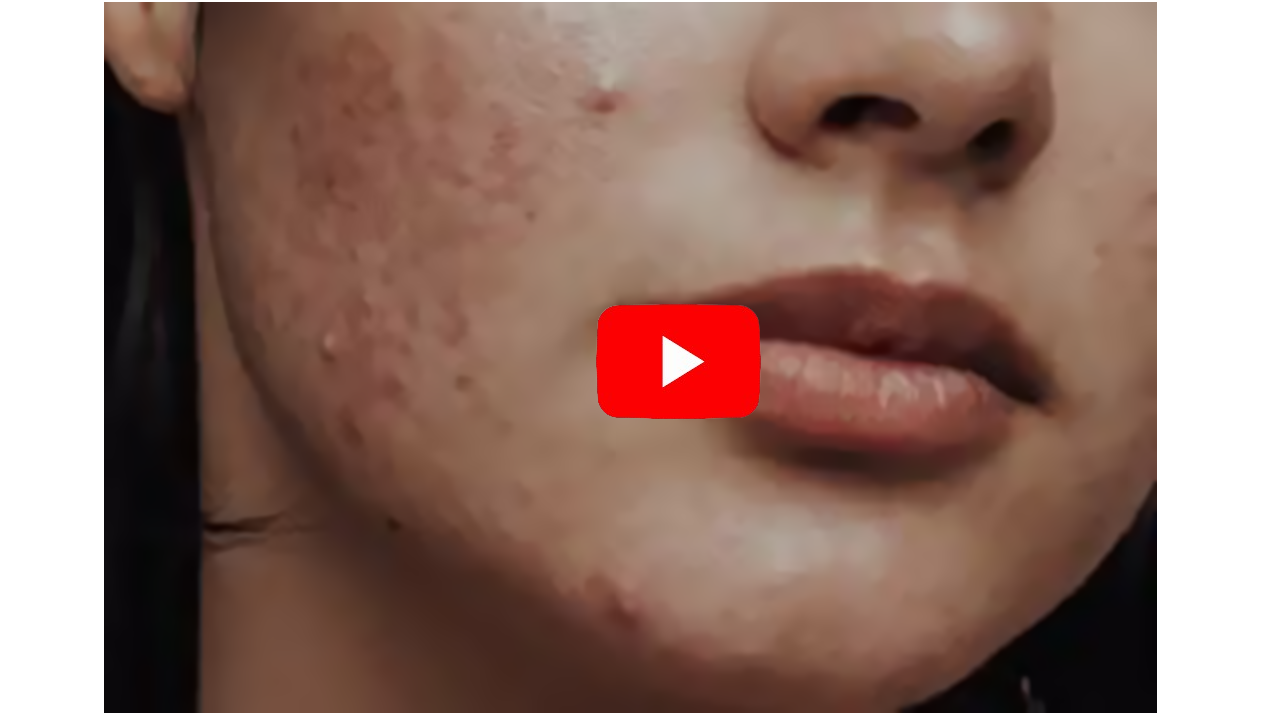Understanding the Causes of Acne
Acne: A Global Skin Concern
Acne is a widespread skin condition affecting millions across all ages, genders, and ethnicities. What may appear as a purely cosmetic issue is, in reality, a complex interplay of biological, genetic, and lifestyle factors. To effectively combat acne, it’s essential to understand its underlying causes.
How Acne Develops
Clogged Hair Follicles
At its core, acne arises when hair follicles become clogged with sebum (skin oil) and dead skin cells. This creates an environment ripe for pimples, blackheads, and cysts to develop. While the process might seem straightforward, multiple variables contribute to its occurrence and severity.
Hormonal Influences
Hormones are a major player in acne formation. Puberty, menstruation, and pregnancy can all trigger fluctuations in androgen levels. Androgens stimulate sebaceous glands to produce more oil, which, when combined with dead skin cells, clogs pores and fosters acne-causing bacteria.
Genetics and Predisposition
Genetics also play a significant role. Some individuals inherit a propensity for oily skin, larger sebaceous glands, or heightened inflammatory responses, making them more susceptible to breakouts.
Environmental and Lifestyle Triggers
Stress, Diet, and Skincare
External factors can amplify acne severity. High stress levels trigger hormonal shifts that encourage oil overproduction. Diets rich in refined carbohydrates and dairy are linked to more frequent or intense breakouts. Additionally, using comedogenic skincare products that block pores can further aggravate acne.
By acknowledging the combined influence of hormonal, genetic, and lifestyle factors, individuals can adopt a targeted approach to manage acne more effectively, addressing both its root causes and visible symptoms.
Achieving Clear Skin: A Holistic Approach
Combining Lifestyle, Skincare, and Expert Treatments
Clear skin doesn’t happen overnight. It requires a multi-faceted strategy that addresses the diverse factors contributing to acne. By blending lifestyle changes, consistent skincare habits, and professional treatments, individuals can dramatically improve skin clarity and resilience.
Skincare Habits for Lasting Results
Cleansing and Exfoliation
A consistent skincare routine is the cornerstone of healthy skin. Cleansing twice daily with a gentle, non-comedogenic cleanser removes excess oil, dirt, and pollutants. Regular exfoliation using salicylic acid or glycolic acid helps unclog pores and prevent new breakouts, promoting a smoother complexion.
Moisturizing Wisely
Hydration is key, even for acne-prone skin. Applying a lightweight, oil-free moisturizer nourishes the skin without exacerbating oiliness or triggering further acne.
Diet and Nutrition
Foods That Support Skin Health
Your diet directly influences your skin’s condition. Eating a balanced diet rich in fruits, vegetables, and whole grains provides essential nutrients that promote healthy skin. Conversely, reducing high-glycemic foods and dairy products can help minimize acne flare-ups and inflammation.
Professional Treatments
Advanced Options for Stubborn Acne
For persistent or severe acne, professional interventions can accelerate results. Options include:
-
Chemical Peels: Remove dead skin layers and reduce clogged pores.
-
Microdermabrasion: Smooths skin texture and promotes cell renewal.
-
Laser Therapy: Targets inflammation, bacteria, and acne scars.
Personalized Guidance
Consulting with a dermatologist ensures treatments are tailored to your skin type and acne severity, maximizing effectiveness and minimizing potential side effects.
By addressing skin health from multiple angles, combining good habits, nutrition, and professional care, the journey toward clear, radiant skin becomes more achievable and sustainable.
✅ Struggling with acne? Discover the 2 natural solutions I personally recommend:
👉 Get Ninja Health Now — Launch Your Health Site in 60 Seconds
Daily Habits for Maintaining Clear, Healthy Skin
Hydration and Sleep: Foundations of Radiance
Drink Plenty of Water
Proper hydration is essential for healthy, resilient skin. Drinking sufficient water flushes out toxins, keeps skin moisturized, and minimizes dryness and irritation—factors that can contribute to breakouts.
Prioritize Restful Sleep
Sleep isn’t just restorative for the mind; it’s critical for skin repair. Adequate rest allows the body to regenerate skin cells, reduce inflammation, and maintain a fresh, glowing complexion.
Cleanliness and Hygiene
Reduce Bacterial Exposure
Maintaining basic cleanliness helps prevent acne flare-ups. Regularly washing pillowcases, towels, and makeup brushes reduces the transfer of oil and bacteria to the skin. Avoiding touching your face with unwashed hands also minimizes the spread of acne-causing microbes.
Sun Protection
Shield Your Skin from UV Damage
Sun exposure can worsen acne and cause post-inflammatory hyperpigmentation. Applying a broad-spectrum sunscreen with at least SPF 30 daily protects the skin from harmful UV rays, prevents premature aging, and supports long-term skin health.
By adopting these simple yet effective daily habits, you create an environment that promotes clearer, healthier skin, complementing your skincare routine and lifestyle efforts.
✅ Struggling with acne? Discover the 2 natural solutions I personally recommend:
👉 Get Ninja Health Now — Launch Your Health Site in 60 Seconds







####### OPVA ########
ULTIMATE РТНС COLLECTION
NO PAY, PREMIUM or PAYLINK
DOWNLOAD ALL СР FOR FREE
Description:-> tiny.cc/zd48vx
Webcams РТНС since 1999 FULL
STICKAM, Skype, video_mail_ru
Omegle, Vichatter, Interia_pl
BlogTV, Online_ru, murclub_ru
Complete series LS, BD, YWM
Sibirian Mouse, St. Peterburg
Moscow, Liluplanet, Kids Box
Fattman, Falkovideo, Bibigon
Paradise Birds, GoldbergVideo
Fantasia Models, Cat Goddess
Valya and Irisa, Tropical Cuties
Deadpixel, PZ-magazine, BabyJ
Home Made Model (HMM)
Gay рthс collection: Luto
Blue Orchid, PJK, KDV, RBV
Nudism: Naturism in Russia
Helios Natura, Holy Nature
Naturist Freedom, Eurovid
ALL studio collection: from
Acrobatic Nymрhеts to Your
Lоlitаs (more 100 studios)
Collection european, asian,
latin and ebony girls (all
the Internet video) > 4Tb
Rurikon Lоli library 171.4Gb
manga, game, anime, 3D
This and much more here:
or –> tiny.cc/sficzz
or –> citly.me/sVJSf
or –> 4ty.me/08yxs4
or –> tt.vg/fiJTt
or –> 7z.si/r9z9
or –> me2.kr/KBMgQ
or –> j1d.ca/_I
or –> put2.me/pwdcjb
or –> 74i.de/dekSToh
—————–
—————–
000A000364
Проверьте себя – обратитесь к [url=https://patya.pro/]Психологу[/url]
Новый материал на сайте:
[url=https://patya.pro/services/specializirovannye-uslugi/geriatricheskaya-psihologiya/rabota-s-pozhilymi-lyudmi.html]Работа СЃ пожилыми людьми [/url] – как работает этот метод?
Рщете помощь для пожилых людей? Психолог Патимат Рсаева предлагает профессиональные услуги РїРѕ работе СЃ пожилыми РІ рамках гериатрической психологии. Рмоциональная поддержка, консультации Рё терапия для улучшения качества жизни.
Работа СЃ пожилыми людьми РѕС‚ психолога Патимат Рсаевой направлена РЅР° предоставление квалифицированной поддержки Рё помощи РІ рамках гериатрической психологии. РњС‹ предлагаем индивидуальные консультации, групповые сеансы Рё специализированную терапию для пожилых людей, помогая РёРј справляться СЃ возрастными изменениями, утратами, депрессиями Рё РґСЂСѓРіРёРјРё психологическими трудностями. Наша цель – улучшить качество жизни пожилых людей Рё обеспечить РёРј необходимую эмоциональную поддержку.